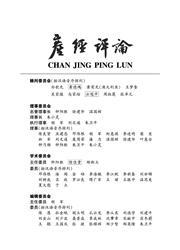

 中文摘要:
中文摘要:
针对工业能源消费和工业增长的研究文献仅仅集中在少数几个部门。扩大样本截面选取中国29个工业部门样本期为1994—2007年的数据组成面板数据进行研究,通过面板单位根和面板协整检验得出:我国工业总能源消费、煤炭消费和电力消费分别与工业增长之间存在长期稳定的均衡关系,然后通过完全修正最小二乘(FMOLS)方法估算出弹性,结果发现煤炭弹性最低,而电力弹性最高,总能源弹性介于煤炭弹性和电力弹性之间。通过建立面板误差修正模型得出总能源消费与工业增长之间存在双向的Granger因果关系,电力消费与工业增长之间也存在双向的Granger因果关系,而煤炭消费与工业增长之间不存在Granger因果关系。最后,提出一些有关提高工业能源效率的建议。
 英文摘要:
英文摘要:
A few literatures focused on industrial sections. The paper enlarged the sample cross - section unit and defines the panel data for 29 industries in China during 1994 -2007. Applying panel data root test and panel cointegration tests, the robust results demonstrated that there are three long equilibrium relationships between industrial total energy consumption, coal consumption, electricity consumption and industrial growth. The paper used FMOLS to estimate the elasticity of industrial growth with respect to total energy consumption, coal consumption and electricity consumption. The results showed that the elasticity of coal was lowest and the elasticity was highest. By establishing panel error correction model ( PECM), the results demonstrated that there was a bilateral Granger causality relationship between total energy consumption, electricity consumption and industrial growth. However, there was no bilateral Granger causality relationship between coal consumption and industrial growth. FinaUy, some suggestions were proposed about improving industrial energy efficiency.
 同期刊论文项目
同期刊论文项目
 同项目期刊论文
同项目期刊论文
 期刊信息
期刊信息
